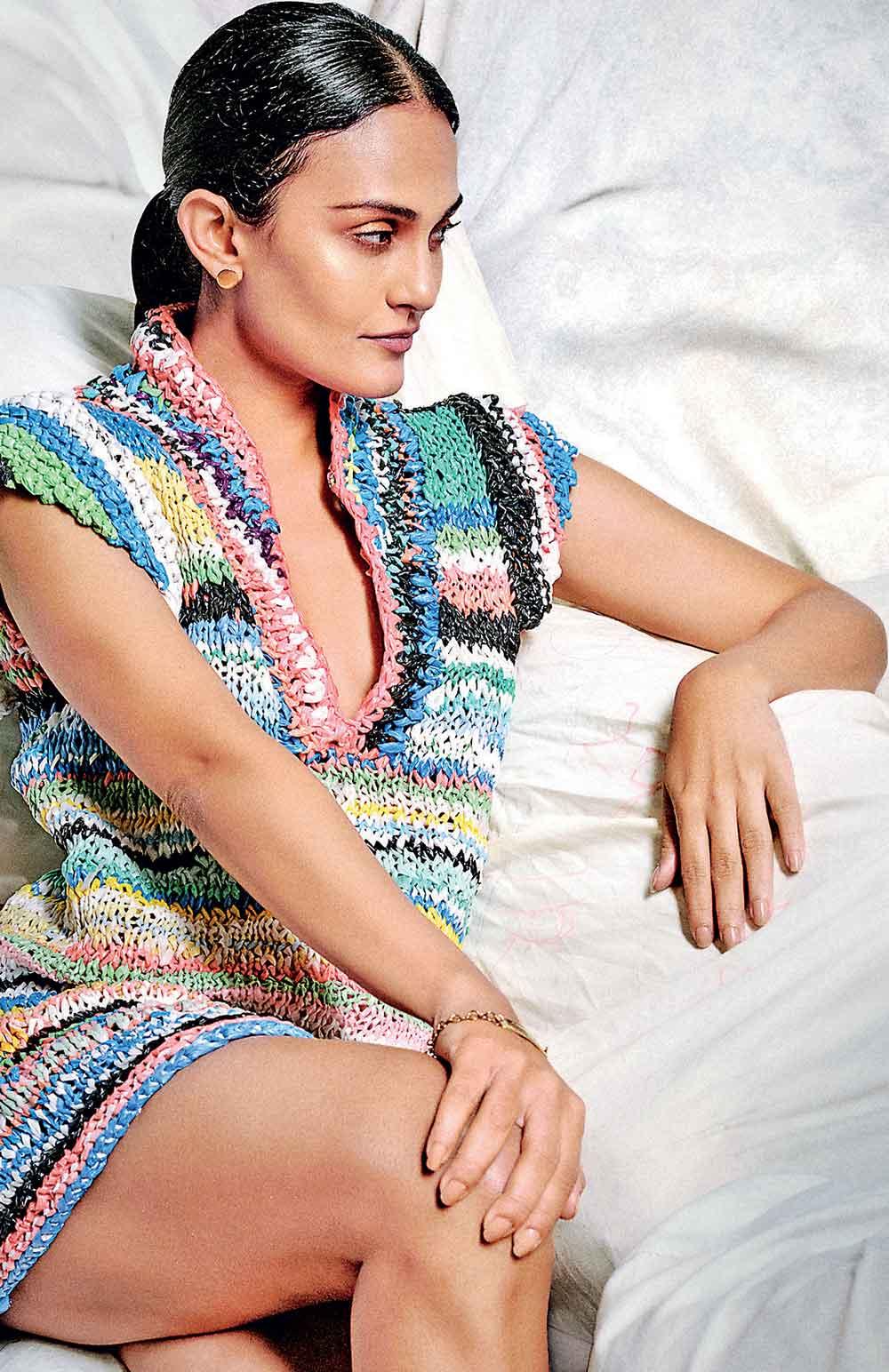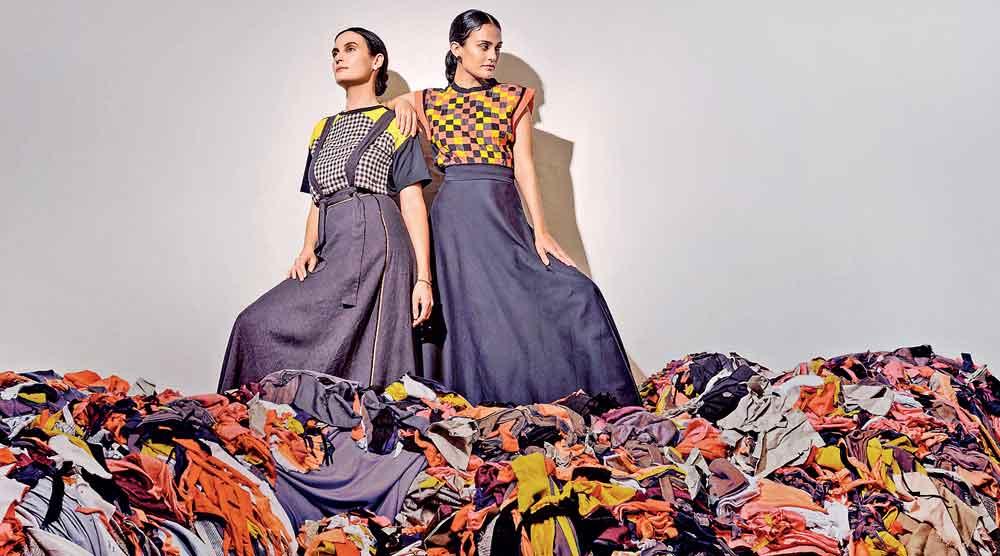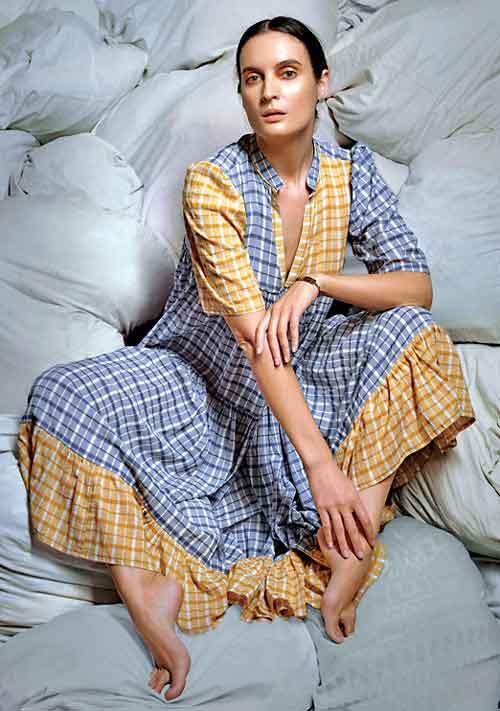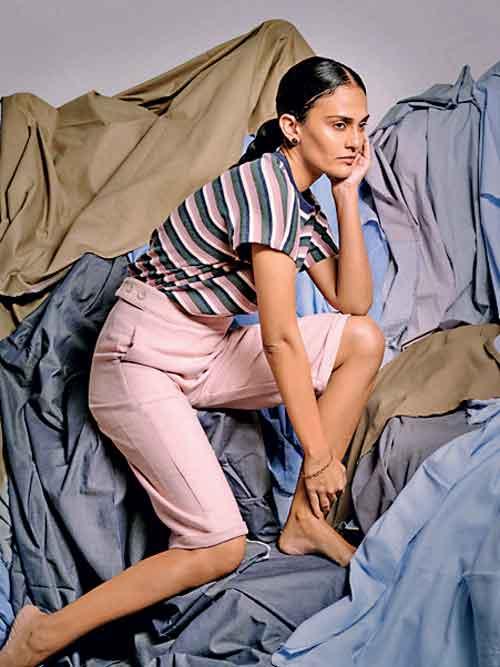For nearly a decade, House of Lonali has been pioneering sustainable fashion in Sri Lanka through design-driven upcycling. At the heart of this journey has been a meaningful collaboration with The Design Collective, a concept store that has championed South Asian fashion from the very beginning. Through this long-standing partnership, House of Lonali has not only expanded its reach locally but has also taken its collections to global audiences, including an upcoming showcase in London. In this exclusive Q&A, founder and creative director Lonali Rodrigo reflects on her brand’s evolution, the power of sustainable design, and the valuable lessons she’s learned along the way, from repurposing deadstock fabric to building a global brand grounded in purpose. With her mission “to design a better future” at the forefront, Lonali shares how House of Lonali is using fashion to make a lasting, ethical impact.

Q House of Lonali has been retailing at The Design Collective since it opened. How has this partnership supported your brand’s journey?
Yes, it has been a great partnership and a journey of almost eight years, putting our strengths together to bring out the best in fashion and to build our brand, House of Lonali. Retailing at The Design Collective has helped us to build our audience, tell our sustainable story, and stay close to our big bold vision: to design a better future.
Q You’re now showcasing with The Design Collective again in London. How does it feel to bring your sustainable, casual designs to an international audience through this platform?
It is amazing to travel the world with our retail partner, The Design Collective, yet again in London, telling our upcycled story from Sri Lanka to a global audience. This is a great opportunity for us to share the essence of our brand through a special collection of one-of-a-kind pieces, all 100% upcycled in Sri Lanka.
Q How has working closely with The Design Collective shaped the way you present your collections both locally and abroad?
Having a retail partner like The Design Collective has helped us focus on three key pillars of our brand: Design, Impact, and Community. While we stay focused on these areas, the TDC team supports us with everything in between, from operations to customer experience, to get our products to the right audience. It’s been a very collaborative and growth-oriented relationship.

Q Your use of deadstock and waste fabrics is a key part of House of Lonali’s identity. How do you adapt your designs to make the most of these materials while keeping your style fresh?
Our process always begins with the material; it’s our inspiration. We see potential in what others discard and use that to create something new and meaningful. Our secret is to make no compromises on fashionability when prioritizing sustainability. We explore every creative possibility to give these discarded materials a second life that is fresh, fashionable, and impactful.
Q London audiences, especially those familiar with By Rotation, have a strong focus on sustainability. How do you anticipate their response compared to your customers in Sri Lanka?
By Rotation is an incredible platform for today’s conscious consumers, people who are mindful and actively seeking to drive the kind of change the world needs. Renting fashion is a disruptive and effective response to overconsumption and landfill waste. I’m really looking forward to seeing how the London audience connects with our upcycled pieces, especially through a lens of circular fashion. In Sri Lanka, sustainability is gaining momentum, but in Western markets it’s often second nature, so I believe there’s a lot we can learn from their approach, and equally, a lot we can contribute through our uniquely South Asian take on sustainable design.
Q Alongside your clothing, you create stationery and accessories. How do these lifestyle pieces fit into the brand’s sustainable ethos and overall vision?
Our brand’s vision is “to design a better future,” and we pursue that vision through upcycling. We don’t limit ourselves to fashion. We believe anything made from waste can be beautiful and purposeful. That’s why we’ve expanded into stationery and accessories and have collaborated with other brands who are aligned with our mission. These lifestyle products help us diversify while staying true to our core values.
QWhat are some of the biggest lessons or milestones you’ve experienced since House of Lonali first started retailing with The Design Collective?
The Design Collective has played a major role in helping us grow. With their support, we’ve expanded from women’s wear into men’s and kids’ collections. We’ve also gone through many trials, experiments, and learning experiences, both good and difficult. As small and fresh brands, both TDC and House of Lonali had to learn how to collaborate and be resilient. Another major milestone has been gaining access to a global audience. That exposure is something we may not have been able to achieve on our own.

Q When new customers discover your work through this trunk show, what do you hope they take away about your brand?
Honestly, the most rewarding experience is seeing customers wear our clothes and express exactly what we hoped they would. At last year’s London trunk show, I randomly met three people who had bought our pieces, and they were still wearing them a year later. They shared how comfortable and loved those pieces were. That kind of feedback shows us we’re on the right path; it’s the most direct and meaningful validation we can receive.
Q What’s next for House of Lonali, are there any exciting projects or directions you’re looking forward to exploring in international markets?
We’re currently collaborating with an international brand to explore more opportunities in the European market. The focus is on creating products that are high in design, high in value, and high in impact, all made sustainably in Sri Lanka. We’re excited about this next chapter, and we’re continuing to seek global opportunities that allow us to stay true to our purpose while reaching new audiences.
Q Finally, if there’s one message you want every customer to take away from House of Lonali, what would it be?
That fashion can be a force for good. That sustainability doesn’t mean compromising on style or quality. Those discarded things, whether fabric or ideas, can be reimagined into something beautiful. And that, together, we can design a better future.













